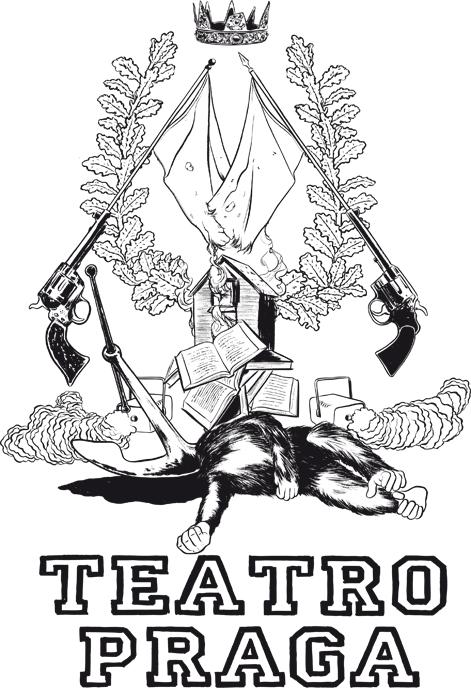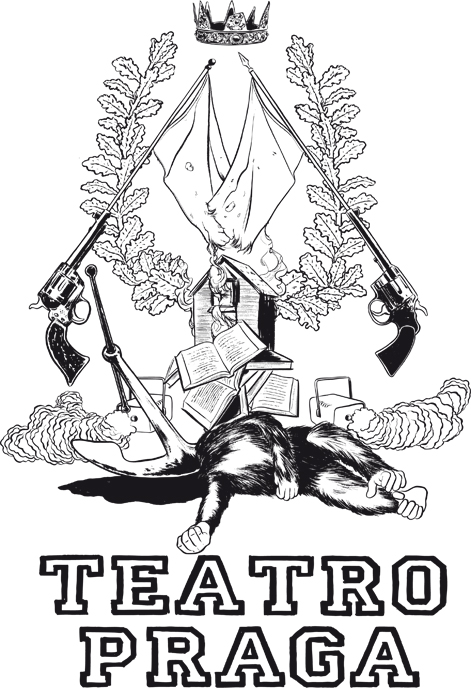
Teatro Praga define themselves as a group or federation of artists, with a coat of arms and a history. When someone asks who they are, they usually propose a rephrasing of the question, since they are something different with every show or day that passes. Still, they rejoice with the established order and find the unpredictable variations of themselves to be a way of enlarging the concept of predictability. The group was born as a result of a gathering of a large group of people that met at a theatre workshop and since then it went through several transformations, but by 2005 it had established a position in the Portuguese off-theatre scene and started to receive invitations to play at some major venues.
From 2005 to 2015 Teatro Praga produced several new performances in different contexts and spaces, playing with classical theatre expectations and trying to open borders and limits. Productions such as Title (2004) (in which they asked themselves where the line between fakeness and reality is to be drawn), Discotheater (2006) (a durational performance that started at midnight and went on until the sun rose up, where they confronted themselves with the concept of virtuosity and the Wagnerian tradition of an epical oeuvre), The Miser or The Last Party (2007) (a rewriting of Molière’s famous play that reverted the plot and turned the performance into a show about youth), Turbo-Folk (2008) (a reflection on tolerance and migration based on works by Slavoj Žižek and Jean-Luc Godard), and the musical Demo (2009) (a collaboration with the American composer Kevin Blechdom that played with mythology and ecology taking India as its fuel) were landmarks in their itinerary towards a recognition that has turned them into one of the major Portuguese theatre companies.
From then on Teatro Praga produced two major shows based on the idea of English 17th century Restoration Theatre, using Shakespeare and Henry Purcell for an ambitious diptych (Midsummer’s Night Dream and The Tempest) that surprised for its scale and impact. Both shows were also presented in Paris. These two shows determined the company’s interest in alternating performances of larger dimension with other smaller productions. The members of Teatro Praga (currently and officially four artists) see themselves as a federation that works as a collective for some productions, looks for different partnerships and leaves space for performances with different creative constellations.
Teatro Praga won several theatre awards in Portugal and regularly collaborates with the most prestigious cultural structures in the country, and has performed at festivals and theatres in several European countries (Italy, UK, Germany, France, Hungary, Slovenia, Slovakia, Poland, Belgium, Spain, Estonia and Denmark), as well as in Israel and China, performing in Portuguese, English, French and even in Hebrew…
The group emphasizes their participation on the European Prospero Network (in a cooperation with Théâtre National de Bretagne - Rennes and Emilia Romagna Teatro Fondazione - Modena), the various collaborations with MC93 (Maison de Culture de la Seine-Saint-Denis), the participation at Chantiers d’Europe 2013/2014/2015 at Théâtre de la Ville (Paris) and the participation in the European project TABUROPA (together with German, Polish and Belgian partners).
Teatro Praga is currently located at Rua das Gaivotas 6 in Lisbon, a new cultural venue in Lisbon for young artists, which is curated by the company.

